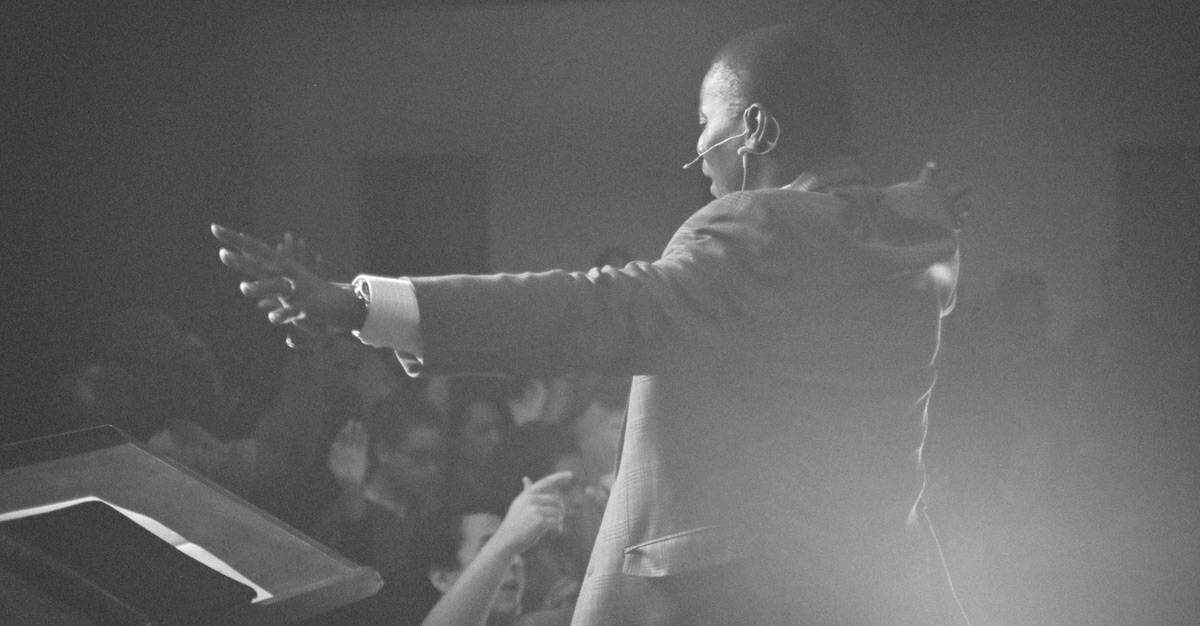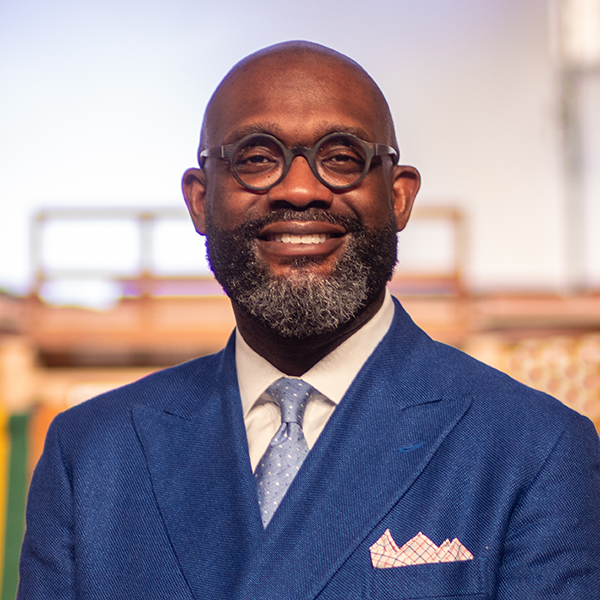A compelling argument can be made that preaching in the context of the American empire has failed miserably. American Christians support fascism, exploitative capitalism and white supremacy from both pulpit and pew.
Churchgoing Americans revel in progressive speech and rhetorical and symbolic “wokeness” while doing little to transform systems that have produced the greatest wealth inequality since the Gilded Age. The early decades of the 21st century have been marked by churches that have conflated American citizenship with Christian discipleship, churches that have embraced rigid ethnocentrism, churches that are committed to American global dominance, as long as that dominance has the patina of kindness and inclusion.
Christians who cling to these beliefs listen to sermons regularly. If preaching is intended to produce what I have described, then American preaching has been effective. But many preachers and congregants know that preaching is supposed to do something else.
What is preaching? What is preaching supposed to do? Preaching heralds the inbreaking reign of God in time and space and invites human participation in God’s reign. A sermon that shines light on divine activity without summoning humans to act alongside God leaves communities of faith vulnerable.
In the United States, converging sociohistorical reckonings are removing threadbare theological carpet and exposing the rotten ecclesial floorboards upon which much of American Christianity rests.
God in Christ is active and present amid this.
But where? With the help of the Holy Spirit, preachers must tell us. And how are we supposed to respond to what God is doing? Answering that question is also the preacher’s work.
Preaching is how the church talks to itself and to others. The church is not called to speak only to itself. The church is called to speak also to those who do not claim our Lord but who are cherished by our Lord just the same.
Sectarian understandings of preaching are biblically and theologically troubling. Indeed, our internal speech may differ from our external speech, but a broad understanding of the preaching task is tied to our broad understanding of how God works in the world. The God revealed in Scripture had a maddening way of speaking to and using people from many backgrounds.
The Jesus of the Gospels was a fantastic trespasser of cultural and religious boundaries. Our speech, like our God, is not for Christians only.
In particular, Mark’s Gospel is fertile ground for our inquiry around preaching and congregational leadership. Mark’s Gospel teaches us that preaching always happens in the context of conflict.
Mark was written around 70 A.D. as the temple lay in ruins. The people were plunged into a theological crisis as the Jewish-Roman War was raging. And Mark decided to tell the story of God’s reign embodied in a poor, peripatetic prophet, healer and preacher.
The Spirit of God compelled Mark to tell the story of Jesus in that roiling reality because at that moment the people needed to know that God was present, and that God was active in Jesus.
We, too, live in a time of rubble. The temple of our familiar (with homage to the great Alice Walker) has collapsed. We preach and lead congregations amid cultural ruins. Many who once believed in American nationalist propaganda no longer do. The abandonment of the national myth has occurred across the political spectrum.
The first words of Mark 1:14-15, marking the beginning of Jesus’ ministry, are “Now after John was arrested.” Jesus did not preach until after John was arrested. As some scholars note, Jesus may have been John’s disciple prior to emerging as a teacher-preacher in his own right. Notwithstanding, Mark makes a subtle yet pivotal point here. Jesus’ preaching happened in the crucible of conflict.
John had been forcibly taken off the scene by imperial power. His proclamation and ethics had challenged the legitimacy of the empire and the religious powers that lent it credibility. Jesus was clear about the cost of preaching. What had happened to John could happen to him. Yet Jesus preached.
I share Mark’s belief that the empire, be it Roman or American, will never be hospitable to the proclamation of God’s great gospel.
The gospel claims all humans and all creation as sacred and unequivocally abhors their exploitation in the interest of gain or greed. The gospel prioritizes an economy of shared abundance and human flourishing. The gospel is committed to nonviolence.
What the gospel is, the Roman Empire was not. What the gospel is, the American empire is not.
A key shift must occur in the thinking of many American preachers and churchgoers if they would wrestle with my idea of Jesus’ homiletic. They must begin from the vantage point that the telos of the American empire, regardless of rhetoric and propaganda, is diametrically opposed to the telos of God’s gospel. History and current events bear witness to this fact. But this knowledge should not be cause for despair.
Before a word is uttered, those who preach in this moment must literally and metaphorically make their way to Galilee, to the place of great risk and great need.
Jesus was afraid. There is no way that John’s arrest did not shake him to the core. Jesus knew that imperial forces would violently take John’s life and ultimately his own. This reading of John’s arrest and Jesus’ preaching in Mark leads us down another path — a soteriological one. God did not send Jesus to die. God sent Jesus to teach us how to live and to love, and we lynched him.
In this moment, preachers and churches must not side with the politics of death that thrive in this land. God showed us that God is on the side of life when the Human One, whom we the religious powers slaughtered in collusion with imperial powers, was raised from the dead early one Sunday morning. God is a God of life. Is the American church committed to life for all people? Death hung in the air like fog throughout Jesus’ ministry. He preached anyway. What about us?
Today’s preachers must deploy language that interrupts imperial rhetoric and liberates the imaginations, visions and dreams of all people, so that their minds, hands and feet will be free.
Today’s preachers must interrogate words like “freedom,” “liberty” and “justice.” Congregations use these words homiletically and liturgically, but they often mean what America means and not what the gospel means when they speak them. Today’s preachers must empty these words of their imperial usages and redeploy them in the interest of God’s reign of justice and peace.

















